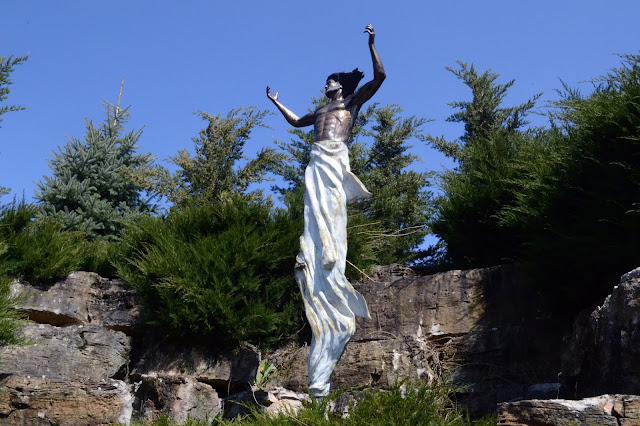At Mass yesterday, Wednesday, May 25, we heard the Gospel story (Mk 10:32-45) in which James and John, the sons of Zebedee, asked Jesus to grant that in his glory each may sit one on his right and one on his left. It was an example of the expectation that that when the messiah came, he would establish a great kingdom on earth that would rule the world. In this view of things, one can imagine that Jesus would be king and his friends would be his cohorts, his governing board, or cabinet, if you will. And the two members of this governing board that would sit on his left and on his right in the board room, or when Jesus sat on his throne as king, would be the most powerful of the group.
It is surprising to me that this was
the expectation apparently held by James and John, of all people. It would seem that both had a lot to learn in
the short time ahead. This would be true
especially of John, the apostle who became the one whom Jesus loved, and the evangelist
who not only wrote the fourth gospel, but also two important letters in the New
Testament scripture. He also became the
man who humbly accepted the role of Mary’s caretaker while standing at the foot
of the cross ("Behold your mother, - Jn 19:27), a humble job and a seemingly far cry from sitting in that chair next to the
throne of God.
John did learn a lot, of course,
beginning with Jesus’ response on this particular occasion when the request to
sit in that awesome chair next to him was made.
This response was a firm lesson in humility, one of many lessons in
humility that Jesus would give during his earthly ministry. He told them that earthly rulers “lord it
over them, and their great ones make their authority felt.” He goes on to say that “it shall not be so
among you. Rather, whoever wishes to be
great among you will be your servant; whoever wishes to be first among you will
be the slave of all.” And he himself,
the man many assumed to be the man on that throne “did not come to be served
but to serve and to give his life as a ransom for many.” Giving his life in this manner would be the
ultimate act of humility.
The message for us seems very
clear. If you would seek a position of
power, seek it primarily as a position to serve others as a slave and not to “lord
it over all.” Do not come into this position
to be served by the people but to serve them as a humble slave, to be their
servant and not the one who is served. Do
not seek this position because you think of it as a prestigious position at the
right hand of the king, but to help others become faithful members of the kingdom. The ones who are the slaves of all will be
the ones who are truly great in the kingdom of God.



